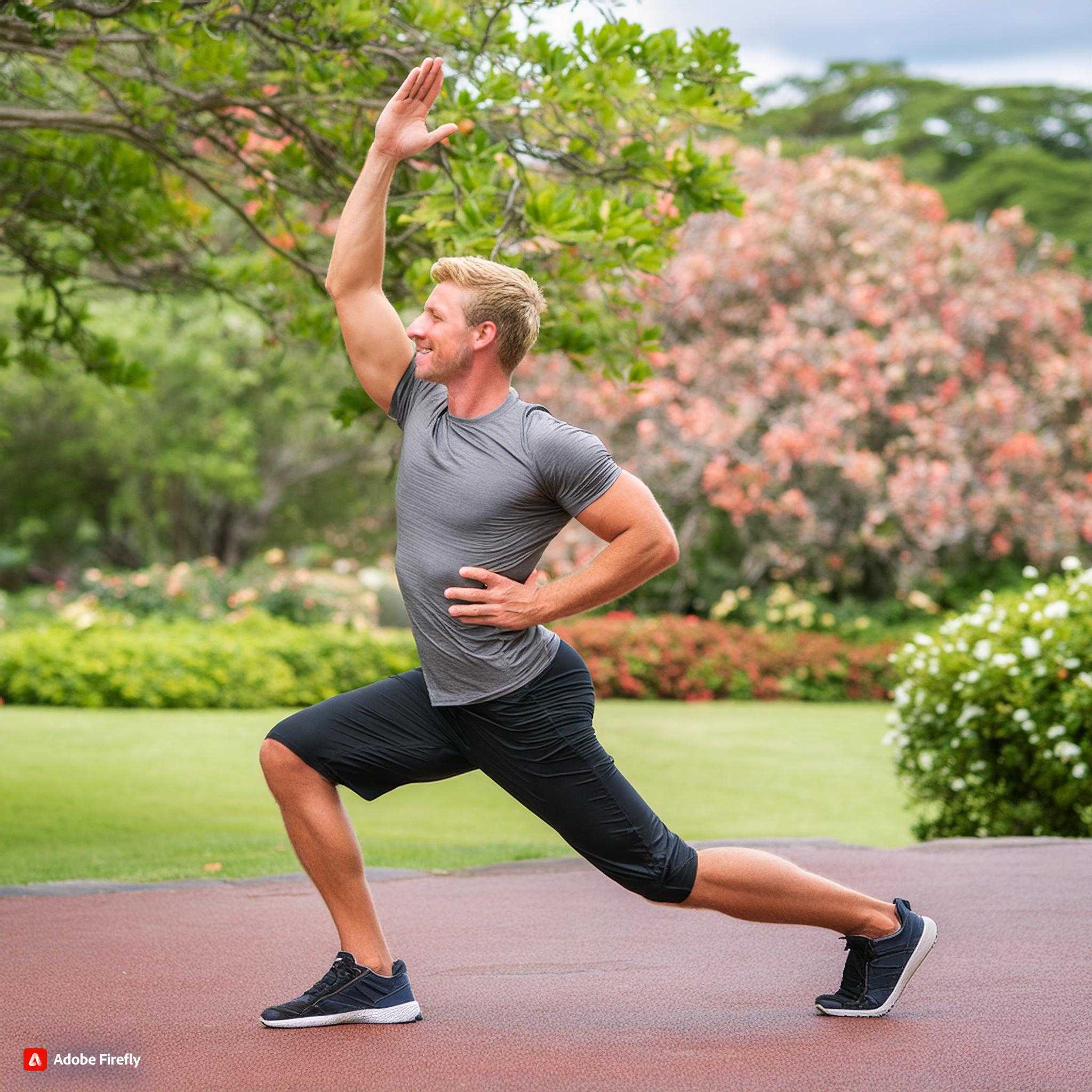
Ethan Carter, MD
Jan 25, 2024
Preventing Hair Loss: Tips for Maintaining Healthy Hair in Men



Preventing Hair Loss: Tips for Maintaining Healthy Hair in Men
Hair loss can be a major concern for men, but there are several proactive steps you can take to maintain healthy hair and reduce the risk of hair loss. By adopting the right hair care practices, making dietary adjustments, and leading a healthy lifestyle, you can keep your hair looking its best. Here are some essential tips to help you prevent hair loss and maintain healthy hair.
1. Adopt a Healthy Hair Care Routine
Consistent and gentle hair care is crucial for preventing hair loss.
Use Mild Shampoo and Conditioner
Opt for shampoos and conditioners free from harsh chemicals like sulfates, parabens, and silicones. These can strip your hair of natural oils, causing dryness and breakage.
Wash your hair regularly, but not too frequently, to avoid over-drying the scalp. Aim for 2-3 times a week, depending on your hair type.
Avoid Heat Damage
Limit the use of heat styling tools such as blow dryers, flat irons, and curling irons. When you do use them, apply a heat protectant spray to minimize damage.
Let your hair air dry whenever possible and use the lowest heat setting if you must use styling tools.
Be Gentle
Avoid rough towel drying. Instead, gently pat your hair dry to prevent breakage.
Use a wide-toothed comb to detangle wet hair, as it’s more susceptible to breakage when wet.
2. Maintain a Balanced Diet
Nutrition plays a vital role in hair health.
Protein-Rich Foods
Hair is primarily made of protein, so ensure your diet includes adequate protein. Good sources include lean meats, fish, eggs, beans, and nuts.
Iron and Zinc
Iron helps carry oxygen to your hair follicles, while zinc plays a crucial role in hair tissue growth and repair. Include foods like red meat, spinach, lentils, and pumpkin seeds in your diet.
Vitamins and Minerals
Vitamins A, C, D, E, and B-complex are essential for healthy hair growth. Eat a variety of fruits and vegetables to ensure you’re getting these vitamins.
Consider taking supplements if you have deficiencies, but consult with a healthcare provider first.
3. Manage Stress
Stress can contribute to hair loss, so finding ways to manage it is essential.
Exercise Regularly
Physical activity reduces stress and promotes overall well-being. Aim for at least 30 minutes of moderate exercise most days of the week.
Practice Relaxation Techniques
Techniques like meditation, deep breathing exercises, and yoga can help reduce stress levels.
Ensure you get enough sleep each night to help your body recover and manage stress better.
4. Avoid Harmful Habits
Certain habits can negatively impact hair health.
Quit Smoking
Smoking reduces blood flow to the scalp, which can weaken hair follicles and lead to hair loss.
Limit Alcohol Consumption
Excessive alcohol can lead to dehydration and nutritional deficiencies, both of which can affect hair health.
5. Protect Your Hair
Take extra steps to shield your hair from damage.
Wear a Hat or Scarf
Protect your hair from excessive sun exposure, which can dry out and damage hair. In cold weather, cover your head to prevent hair from becoming brittle.
Avoid Tight Hairstyles
Hairstyles that pull on the hair, like ponytails or braids, can cause traction alopecia, a type of hair loss. Opt for looser styles to reduce stress on your hair.
6. Regular Scalp Care
A healthy scalp is essential for healthy hair growth.
Scalp Massage
Regular scalp massages can improve blood circulation to the hair follicles, promoting hair growth. Use your fingertips to massage your scalp gently in circular motions for a few minutes daily.
Stay Hydrated
Drink plenty of water to keep your scalp hydrated and support overall hair health.
Take Proactive Steps for Healthy Hair
Preventing hair loss and maintaining healthy hair requires a combination of good hair care practices, a nutritious diet, stress management, and avoiding harmful habits. By following these tips, you can reduce the risk of hair loss and keep your hair looking strong and vibrant.
Ready to take control of your hair health? Get your personalized plan on our website today and start your journey towards healthier hair!
Preventing Hair Loss: Tips for Maintaining Healthy Hair in Men
Hair loss can be a major concern for men, but there are several proactive steps you can take to maintain healthy hair and reduce the risk of hair loss. By adopting the right hair care practices, making dietary adjustments, and leading a healthy lifestyle, you can keep your hair looking its best. Here are some essential tips to help you prevent hair loss and maintain healthy hair.
1. Adopt a Healthy Hair Care Routine
Consistent and gentle hair care is crucial for preventing hair loss.
Use Mild Shampoo and Conditioner
Opt for shampoos and conditioners free from harsh chemicals like sulfates, parabens, and silicones. These can strip your hair of natural oils, causing dryness and breakage.
Wash your hair regularly, but not too frequently, to avoid over-drying the scalp. Aim for 2-3 times a week, depending on your hair type.
Avoid Heat Damage
Limit the use of heat styling tools such as blow dryers, flat irons, and curling irons. When you do use them, apply a heat protectant spray to minimize damage.
Let your hair air dry whenever possible and use the lowest heat setting if you must use styling tools.
Be Gentle
Avoid rough towel drying. Instead, gently pat your hair dry to prevent breakage.
Use a wide-toothed comb to detangle wet hair, as it’s more susceptible to breakage when wet.
2. Maintain a Balanced Diet
Nutrition plays a vital role in hair health.
Protein-Rich Foods
Hair is primarily made of protein, so ensure your diet includes adequate protein. Good sources include lean meats, fish, eggs, beans, and nuts.
Iron and Zinc
Iron helps carry oxygen to your hair follicles, while zinc plays a crucial role in hair tissue growth and repair. Include foods like red meat, spinach, lentils, and pumpkin seeds in your diet.
Vitamins and Minerals
Vitamins A, C, D, E, and B-complex are essential for healthy hair growth. Eat a variety of fruits and vegetables to ensure you’re getting these vitamins.
Consider taking supplements if you have deficiencies, but consult with a healthcare provider first.
3. Manage Stress
Stress can contribute to hair loss, so finding ways to manage it is essential.
Exercise Regularly
Physical activity reduces stress and promotes overall well-being. Aim for at least 30 minutes of moderate exercise most days of the week.
Practice Relaxation Techniques
Techniques like meditation, deep breathing exercises, and yoga can help reduce stress levels.
Ensure you get enough sleep each night to help your body recover and manage stress better.
4. Avoid Harmful Habits
Certain habits can negatively impact hair health.
Quit Smoking
Smoking reduces blood flow to the scalp, which can weaken hair follicles and lead to hair loss.
Limit Alcohol Consumption
Excessive alcohol can lead to dehydration and nutritional deficiencies, both of which can affect hair health.
5. Protect Your Hair
Take extra steps to shield your hair from damage.
Wear a Hat or Scarf
Protect your hair from excessive sun exposure, which can dry out and damage hair. In cold weather, cover your head to prevent hair from becoming brittle.
Avoid Tight Hairstyles
Hairstyles that pull on the hair, like ponytails or braids, can cause traction alopecia, a type of hair loss. Opt for looser styles to reduce stress on your hair.
6. Regular Scalp Care
A healthy scalp is essential for healthy hair growth.
Scalp Massage
Regular scalp massages can improve blood circulation to the hair follicles, promoting hair growth. Use your fingertips to massage your scalp gently in circular motions for a few minutes daily.
Stay Hydrated
Drink plenty of water to keep your scalp hydrated and support overall hair health.
Take Proactive Steps for Healthy Hair
Preventing hair loss and maintaining healthy hair requires a combination of good hair care practices, a nutritious diet, stress management, and avoiding harmful habits. By following these tips, you can reduce the risk of hair loss and keep your hair looking strong and vibrant.
Ready to take control of your hair health? Get your personalized plan on our website today and start your journey towards healthier hair!
© 2024 Hairful. All rights reserved.
© 2024 Hairful. All rights reserved.
© 2024 Hairful. All rights reserved.